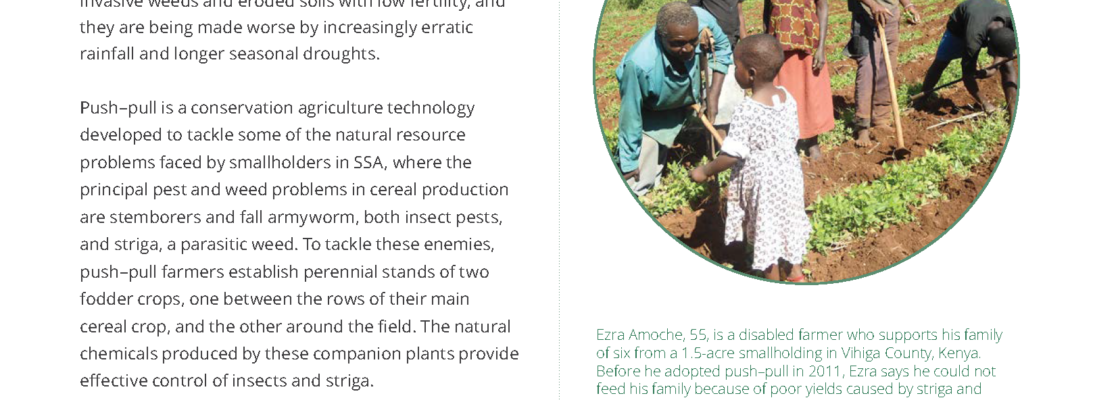The smallholder farmers who make up 80% of the population of Sub-Saharan Africa (SSA) face many challenges in producing adequate and reliable grain harvests on which their livelihoods depend. These constraints include ravaging pests, invasive weeds and eroded soils with low fertility, and they are being made worse by increasingly erratic rainfall and longer seasonal droughts. Push–pull is a conservation agriculture technology developed to tackle some of the natural resource problems faced by smallholders in SSA, where the principal pest and weed problems in cereal production are stemborers and fall armyworm, both insect pests, and striga, a parasitic weed. To tackle these enemies, push pull farmers establish perennial stands of two fodder crops, one between the rows of their main cereal crop, and the other around the field. The natural chemicals produced by these companion plants provide effective control of insects and striga.
Authors: icipe team
Contact address: icipe@icipe.org
Institution: International Centre of Insect Physiology and Ecology
Twitter name of the institution: @icipe
Twitter link: https://x.com/icipe
Available downloads:


